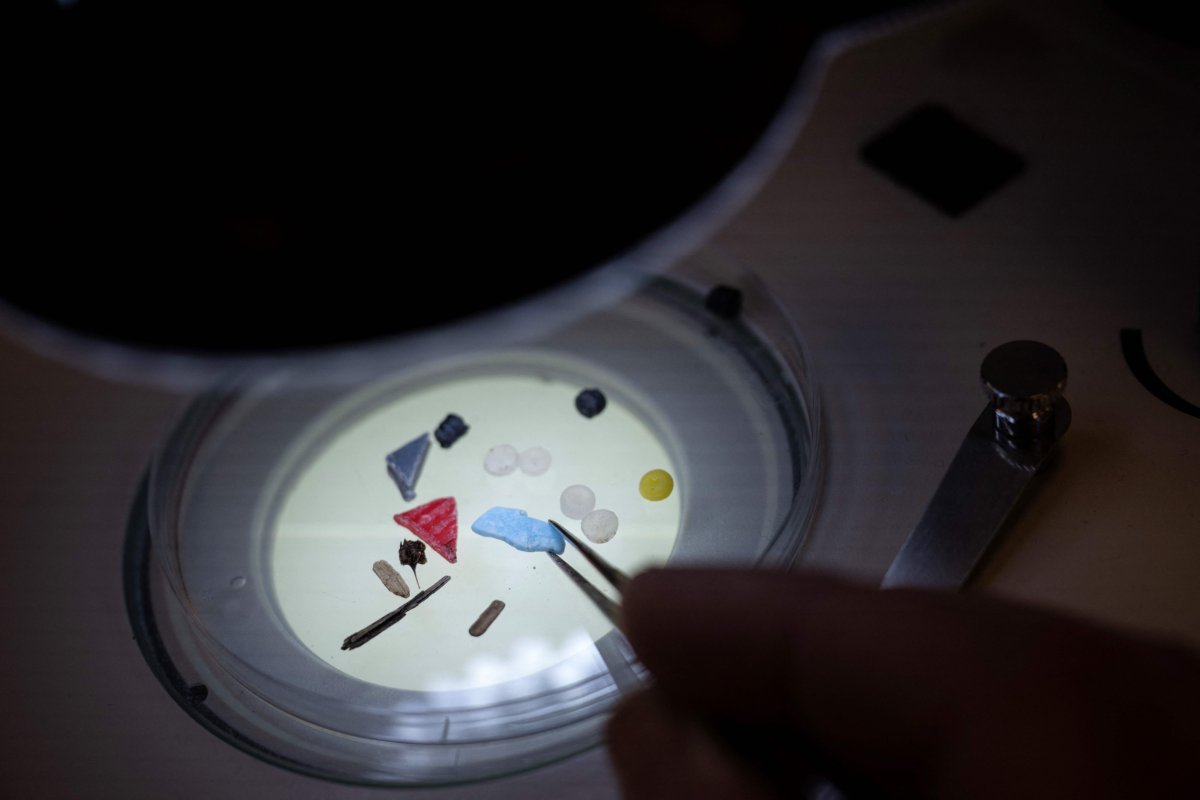Some may have been dismayed, others horrified, or even disgusted. Scientists researching microplastics, however, were unsurprised.
Recent news from a study led by Madeleine Milne with Ocean Conservancy and the University of Toronto showed that 90 percent of the items that they tested, items we find in our fridges and grocery stores—from burgers and steaks to chicken and even plant-based foods—contain those seemingly ubiquitous tiny particles of plastics, often referred to as microplastics.
Chicken nuggets. Plant-based burgers. Fish fillets. None of our favorite freezer delicacies were spared.
The inclusion of fish on this list of 16 types of protein tested, however, was the one that surprised me the least. For years now, we have been finding microplastics in fish and in freshwater more broadly.
A few years ago, a team of researchers found that Lake Winnipeg's plastics pollution problem was greater than or comparable to that of many of the Laurentian Great Lakes, with further research showing the presence of microplastics in the stomachs of fish from the Red River. Those same researchers have also found microplastics in fish tissues in the wild and in those sold fresh in supermarkets.
The more we look for microplastics, the more we find them—including in our food.
What has given me hope over the years in the face of this research, however, is the level of public interest in efforts to try and reduce and remove plastics from our environment. From David Attenborough's educational programming and campaigns on plastics in the oceans (including the unforgettable episode seven of Blue Planet II) that has captured the imaginations of millions around the globe to artworks, and, of course, real life images of plastics in the oceans that have appeared in all corners of social media.
No wonder this year's Earth Day theme focuses on Planet vs. Plastics.
The message is clear: The world cares, and when the world cares, things change.
Changes to environmental practice and policy throughout history have come from grassroots efforts and public pressure; from nutrient controls to acid rain and mercury pollution.

In each of these examples, this public sentiment was focused on bolstering the health of fresh water.
Fresh water is essential to supporting life; we are two-thirds water by mass and will die of thirst without water in days. We also depend on freshwater bodies to support our economy and recreational activities.
But much of the focus on plastics in water is mainly focused on oceans.
Take the current U.N. Intergovernmental Negotiating Committee on Plastics Pollution (INC), including in the marine environment, which is seeking to find an internationally legally binding agreement on plastic pollution. The INC is heading to Ottawa in April for a fourth round of negotiations.
As the title would suggest, the focus of the first three rounds of negotiations have been focused on mitigating and removing plastics pollution from marine systems. However, we need to be diligent to ensure that freshwater systems are also considered in these efforts.
Then comes the question of research. Now that we know that these microplastics are everywhere, it's critical to understand their impact on organisms and human health.
While there is critical research on the impact of plastics on fresh water taking place as I type, we need more. And soon.
Public support for environmental issues is never misplaced and is always a critical tool in making change. But when it comes to plastics in water, let's expand the spotlight to include fresh water, which is the material that forms the basis of all life.
Michael Rennie is associate professor at Lakehead University and research fellow at IISD Experimental Lakes Area.
The views expressed in this article are the writer's own.
Uncommon Knowledge
Newsweek is committed to challenging conventional wisdom and finding connections in the search for common ground.
Newsweek is committed to challenging conventional wisdom and finding connections in the search for common ground.
About the writer
To read how Newsweek uses AI as a newsroom tool, Click here.






